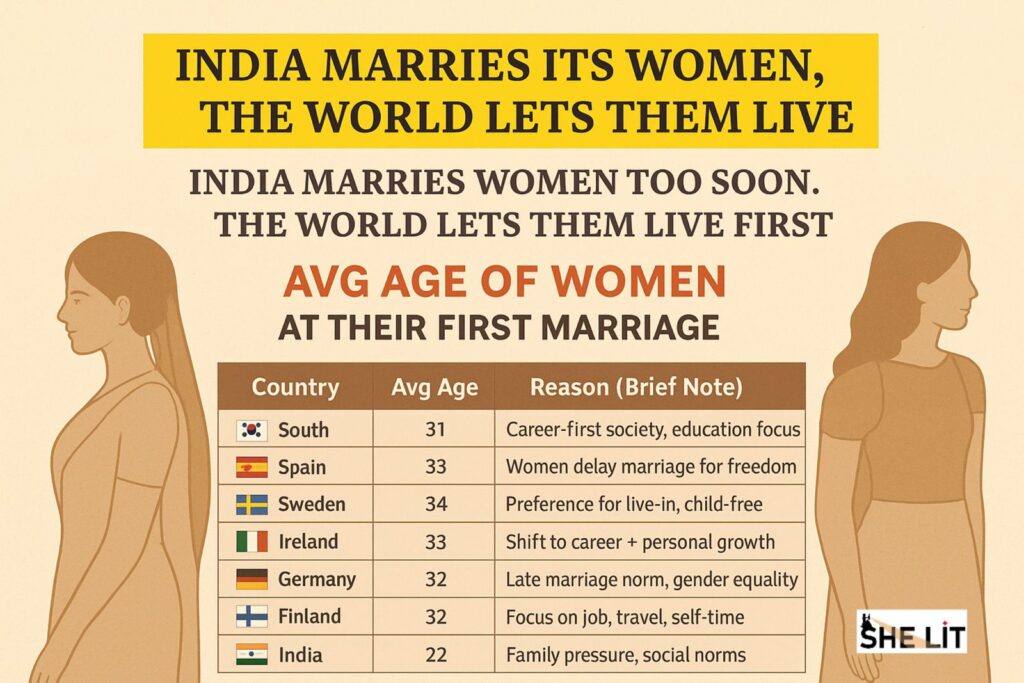Marriage is one of the most defining transitions in a woman’s life. But what happens when this transition comes too early, before she has truly lived, explored, or discovered herself? A quick glance at the global average age of women at their first marriage reveals a striking truth: while women in most developed nations marry in their 30s, Indian women are pushed into marriage nearly a decade earlier.
The Numbers Speak
- South Korea – 31 years: Career-first society, high focus on education.
- Spain – 33 years: Women delay marriage for freedom and cohabitation trends.
- Sweden – 34 years: Strong preference for live-in relationships and a child-free lifestyle.
- Ireland – 33 years: Women prioritize careers and personal growth before marriage.
- Germany – 32 years: Late marriage is normalized, gender equality is emphasized.
- Finland – 32 years: Focus on jobs, travel, and self-time before settling down.
- India – 22 years: Family pressure, societal expectations, and cultural norms dictate early marriage.
This gap of 10–12 years highlights not just a difference in statistics but a difference in freedom, choice, and opportunity.
Why the Gap Exists
In much of the world, women are encouraged or at least allowed to live independently, build careers, travel, and explore relationships before marriage. These experiences help them enter marriage as individuals who know themselves and what they want.
In India, however, societal pressure often rushes women into early marriage. Parents see marriage as a duty, communities see it as honor, and young women see it as inevitable. The result? Countless women marry before they have even had the chance to finish studying, build a career, or explore life on their own terms.
The Cost of Early Marriage
Early marriage may seem “normal” in Indian society, but its costs are heavy:
- Interrupted education – Many women drop out of studies.
- Limited career growth – Early domestic responsibilities shrink professional opportunities.
- Dependency – Women often remain financially and emotionally dependent.
- Lost individuality – Dreams and aspirations take a backseat.
A Better Path Forward
The question is not whether women should marry, but when. Globally, women marry after achieving independence, both personal and professional. This gives them not only stability but also equality in their relationships.
For India to move forward, women must be allowed to:
- Complete their education.
- Work and build financial independence.
- Travel, explore, and discover themselves.
- Choose marriage when they feel ready, not when society demands it.
In India, women often marry before finishing their exploration of life. Across the world, women live first, and then marry. If India truly wants to empower its daughters, we must let them live before we marry them off.

